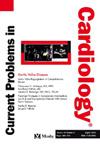Medicaid coverage in the context of an ecological framework of health in the united states–A present-day power dynamic with negative implications
IF 3.3
3区 医学
Q2 CARDIAC & CARDIOVASCULAR SYSTEMS
引用次数: 0
Abstract
Power dynamics may be defined as “a way different people or different groups of people interact with each other and where one of these sides is more powerful than the other one.” Pronk et al. recently proposed an ecological framework for United States population health, identifying culture, politics, policy, and socioeconomics as forcing factors that drive variations in health behaviors, health conditions and ultimately health outcomes. The current analysis examines the percentage of individuals currently covered by Medicaid alone in the context of the forcing factors and health outcomes of the ecologic framework. Counties identified as aggressively individualistic had a significantly higher percentage of the population covered by Medicaid alone compared to all other groups. The percentage of the population covered by Medicaid alone was significantly correlated with all measures and outcomes within the ecological framework. Apart from the prevalence of binge drinking and cancer, all other measures and outcomes trended toward a less favorable pattern as the percentage of the county-level population covered by Medicaid alone increased. The potential for reductions in Medicaid funding represents a current political power dynamic. The current study indicates this power dynamic may have significant adverse consequences to the proposed ecological framework for health–the percentage of the population covered by Medicaid alone is related to an unfavorable phenotype across all forcing factors of the framework as well as health outcomes. Loss of Medicaid coverage has significant implications for further worsening population health.
医疗补助覆盖在美国健康的生态框架的背景下-与负面影响的当今权力动态。
权力动力学可以被定义为“不同的人或不同的群体相互作用的方式,其中一方比另一方更强大。”Pronk等人最近提出了美国人口健康的生态框架,认为文化、政治、政策和社会经济是驱动健康行为、健康状况和最终健康结果变化的强迫因素。当前的分析在生态框架的强迫因素和健康结果的背景下检查了目前仅由医疗补助覆盖的个人百分比。与所有其他群体相比,被认定为积极个人主义的县,仅医疗补助覆盖的人口比例明显更高。仅医疗补助覆盖的人口百分比与生态框架内的所有措施和结果显着相关。除了酗酒和癌症的流行之外,所有其他措施和结果都趋向于不太有利的模式,因为只有医疗补助覆盖的县级人口比例增加了。削减医疗补助资金的可能性代表了当前的政治权力动态。目前的研究表明,这种权力动态可能对拟议的健康生态框架产生重大不利影响——仅医疗补助覆盖的人口百分比与框架的所有强制因素以及健康结果的不利表型有关。医疗补助覆盖面的丧失对人口健康状况的进一步恶化具有重大影响。
本文章由计算机程序翻译,如有差异,请以英文原文为准。
求助全文
约1分钟内获得全文
求助全文
来源期刊

Current Problems in Cardiology
医学-心血管系统
CiteScore
4.80
自引率
2.40%
发文量
392
审稿时长
6 days
期刊介绍:
Under the editorial leadership of noted cardiologist Dr. Hector O. Ventura, Current Problems in Cardiology provides focused, comprehensive coverage of important clinical topics in cardiology. Each monthly issues, addresses a selected clinical problem or condition, including pathophysiology, invasive and noninvasive diagnosis, drug therapy, surgical management, and rehabilitation; or explores the clinical applications of a diagnostic modality or a particular category of drugs. Critical commentary from the distinguished editorial board accompanies each monograph, providing readers with additional insights. An extensive bibliography in each issue saves hours of library research.
 求助内容:
求助内容: 应助结果提醒方式:
应助结果提醒方式:


